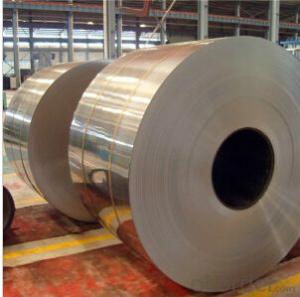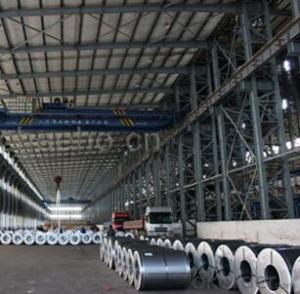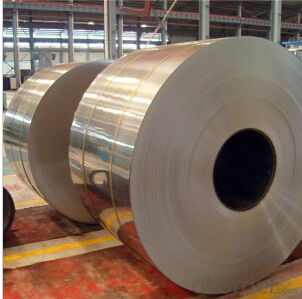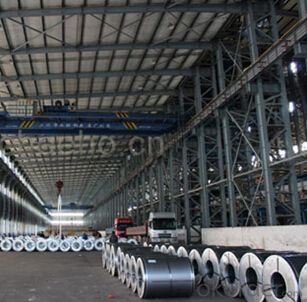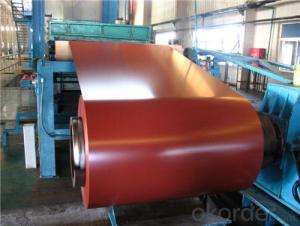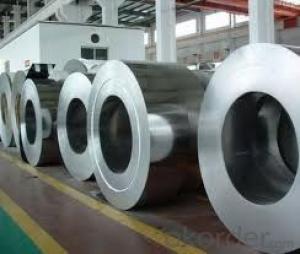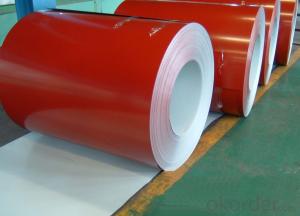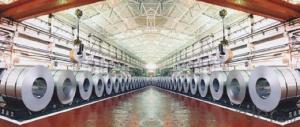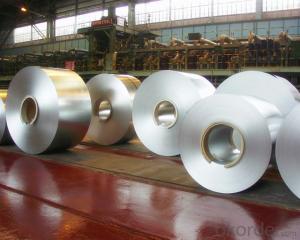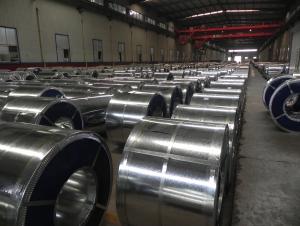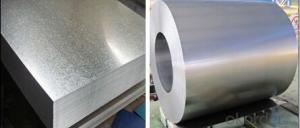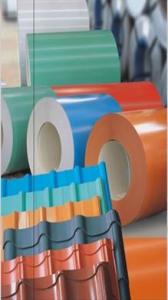Cold Rolled Stainless Steel Coils SUS304
- Loading Port:
- Tianjin
- Payment Terms:
- TT OR LC
- Min Order Qty:
- 25 m.t.
- Supply Capability:
- 50000 m.t./month
OKorder Service Pledge
OKorder Financial Service
You Might Also Like
Cold Rolled Stainless Steel Coils Description:
Model NO.:SUS304
Technique:Cold Rolled
Standard:ASTM, JIS, GB, AISI, DIN Export Markets:Global
Stainless Steel Sheet (304 316 309S 310 321)(Cold Rolled)
We main supply stainless steel sheet/plate every year, For the 304 stainless steel
Sheet, we have the NO. 1 2B BA NO. 8 HL surface and so on. For the cold rolled 304
Stainless steel plate, the thickness we have: 0.3mm, 0.4mm, 0.5mm, 0.6mm, 0.7mm, 0.8mm,0.9mm, 1.0mm, 1.2mm, 1.5mm, 2.0mm, 2.5mm, 3.0mm. For the hot rolled 304 stainless steel Plate, the thickness we have: 3.0mm, 4.0mm, 5.0mm, 6.0mm, 8.0mm, 10.0mm, 12.0mm, 14.0mm,16.00mm, 20.00mm and so on. For these thickness above, all the 304 stainless steel plate
For the Thickness above 20.00mm, we can manufacture for you, the max thickness of 304 stainless Steel plate we can produce for you is 100.00mm.Type Stainless steel plate /sheet.Thickness 0.3 mm-80mm .Width 1000mm, 1219mm, 1240mm, 1500mm, 1800mm, 2000mm.Length 2000mm-6000mmor as customer request
Standard ASME, ASTM, EN, BS, GB, DIN, JIS, etc.Material 201, 202, 301, 321, 304, 304L, 316, 316L, 309S, 310S, 410, 410S, etc.Surface 2B, BA, 8K, No. 4
Packaging Standard export sea-worthy packing Technique Hot rolled / cold rolled
Delivery time 10-30 days
Supply ability 50000 metric tons/ month
Payment terms L/C, T/T
Application range Foodstuff, gas, metallurgy, biology, electron, chemical, petroleum
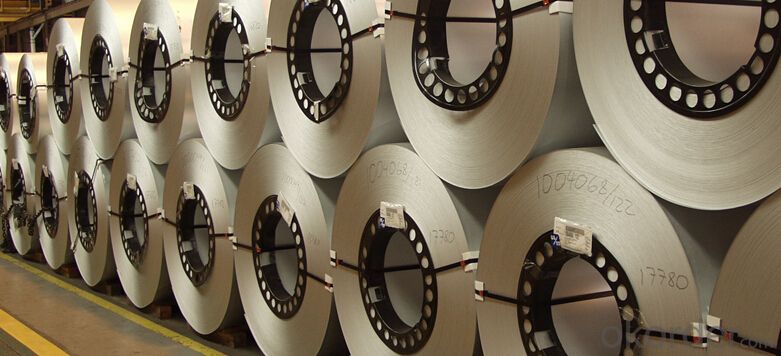
- Q: How do steel coils contribute to sustainable construction?
- Steel coils contribute to sustainable construction in several ways. Firstly, steel is a highly durable and long-lasting material, which means that structures made from steel coils have a longer lifespan and require less maintenance and replacement over time. This reduces the amount of waste generated and resources consumed in the construction industry. Additionally, steel is a recyclable material, so steel coils can be easily recycled and reused, reducing the demand for new steel production and minimizing the environmental impact. Steel is also a lightweight material, which allows for more efficient transportation and installation, reducing energy consumption and greenhouse gas emissions. Finally, steel coils offer excellent structural strength, enabling the design of more sustainable and energy-efficient buildings with reduced material usage, increased energy efficiency, and improved safety. Overall, steel coils play a crucial role in promoting sustainability in construction through their durability, recyclability, lightweight nature, and structural benefits.
- Q: What are the different types of steel coil surface treatments for corrosion resistance?
- There are several types of steel coil surface treatments for corrosion resistance, including galvanizing, zinc coating, chromating, and polymer coating.
- Q: What kind of steel should be used for constructing a steel building?
- Quality okorder /
- Q: I have a necklace that has a pendent made out of stainless steel. The pendent is connected by a cord, not chain, that I can take on and off; so, I leave it on all the time. It has gotten pretty tarnished because of that.
- steel jewelry Daily care? Just need a soft cloth just fine. Or you can use toothpaste to clean the stailess steel jewelry.
- Q: I believe steel is stronger but it steel lighter than iron too?
- Steel is iron, with other things added that strengthen it and/or make it less rust liable. So, in general, steel is stronger than iron. In so far as the density, that depends on the steel alloy. Some are higher than iron, some lower. Remember there are hundreds of different steel alloys. edit: but the density is still close to that of iron. density steel 7750 to 8050 kg/m? density iron 7870 kg/m?
- Q: How are steel coils used in the production of shelving units?
- Steel coils are used in the production of shelving units by being processed and formed into various components such as shelves, brackets, and support beams. These coils are typically cut, bent, and welded to create the necessary shapes and sizes required for the shelving unit. The steel material provides strength and durability to the shelves, ensuring they can hold heavy items and withstand the weight placed on them.
- Q: How are steel coils used in the production of fencing materials?
- Steel coils are commonly used in the production of fencing materials as they provide a strong and durable base for manufacturing various types of fences. These coils are typically unrolled and cut into desired lengths, which serve as the main structural component of the fence. Additionally, the steel coils can be further processed to create different fencing designs and features, such as chain link or wrought iron patterns. Overall, steel coils are essential in the production of fencing materials due to their strength, versatility, and ability to withstand harsh environmental conditions.
- Q: which cost more: ALLOY, GUNMENTAL OR STAINLESS STEEL. GIVE ME AN IDEA OF THE COST OF EACH.
- Titanium alloy is. Its the hardest metal in the world and takes about 6 months to produce. I sell titanium juliets for 350.
- Q: What are the common uses of galvanized steel coils?
- Galvanized steel coils are commonly used in various industries for their corrosion resistance and durability. They are extensively used in construction for roofing, walls, and structural components. Galvanized steel coils are also used in the automotive industry for manufacturing parts like car bodies, frames, and exhaust systems. Additionally, they find applications in the manufacturing of appliances, electrical enclosures, and agricultural equipment.
- Q: What are the different types of steel coil surface finish treatments?
- There are numerous options for treating the surface finish of steel coils, each serving a distinct purpose and offering unique qualities. Several common types include: 1. Hot Rolling: This is a fundamental and widely-used treatment method for steel coil surface finish. It involves heating the steel above its recrystallization temperature and then rolling it to achieve the desired thickness. This process yields a rough surface texture. 2. Cold Rolling: In contrast to hot rolling, cold rolling involves rolling the steel coil at room temperature. This treatment produces a smoother surface finish with improved dimensional accuracy and tighter tolerances. 3. Galvanization: Galvanization is a process in which a protective zinc coating is applied to the surface of the steel coil. This treatment not only enhances the appearance, but also provides excellent corrosion resistance, making it suitable for outdoor applications. 4. Electro-Galvanization: Similar to galvanized steel, electro-galvanized steel coil is coated with a layer of zinc. However, this coating is applied through an electroplating process, resulting in a thinner and more controlled coating. 5. Pre-Painting: Pre-painting involves applying a layer of paint or protective coating to the steel coil before it is delivered to the customer. This treatment enhances the appearance and provides additional protection against corrosion. 6. Stainless Steel: The surface finish treatment for stainless steel coils involves passivating the steel to remove any impurities or contaminants on the surface. This process improves corrosion resistance and gives the steel a clean and smooth appearance. 7. Embossing: Embossing is a treatment where a pattern or design is pressed into the surface of the steel coil. This treatment enhances the aesthetic appeal and can provide added grip or texture, depending on the specific design. 8. Brushing: Brushing is a treatment that involves using a fine abrasive material to create a brushed pattern on the surface of the steel coil. This finish provides a unique texture and can help conceal scratches or imperfections. These are just a few examples of the different surface finish treatments available for steel coils. The choice of treatment depends on the specific requirements of the application, such as appearance, corrosion resistance, or functionality. It is crucial to select the most suitable treatment to ensure the desired outcome.
Send your message to us
Cold Rolled Stainless Steel Coils SUS304
- Loading Port:
- Tianjin
- Payment Terms:
- TT OR LC
- Min Order Qty:
- 25 m.t.
- Supply Capability:
- 50000 m.t./month
OKorder Service Pledge
OKorder Financial Service
Similar products
Hot products
Hot Searches
Related keywords
